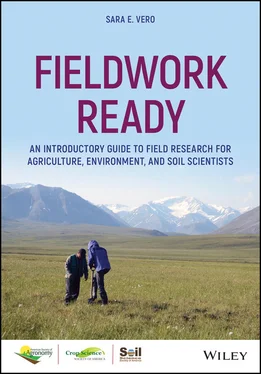While the conclusions from experiment one could be extrapolated to the field scale, without the bridging provided by experiment two, and the real‐world implications observed in the field during experiment three, any recommendations derived thus would be vulnerable to overemphasis or misinterpretation. Conversely, while field experiments might reveal the implications or applications of (for example) farm management practices, they may struggle to differentiate the underlying causative factors. A joint approach incorporating both laboratory and field elements can often yield a more comprehensive understanding, and justified conclusions than either can in isolation.
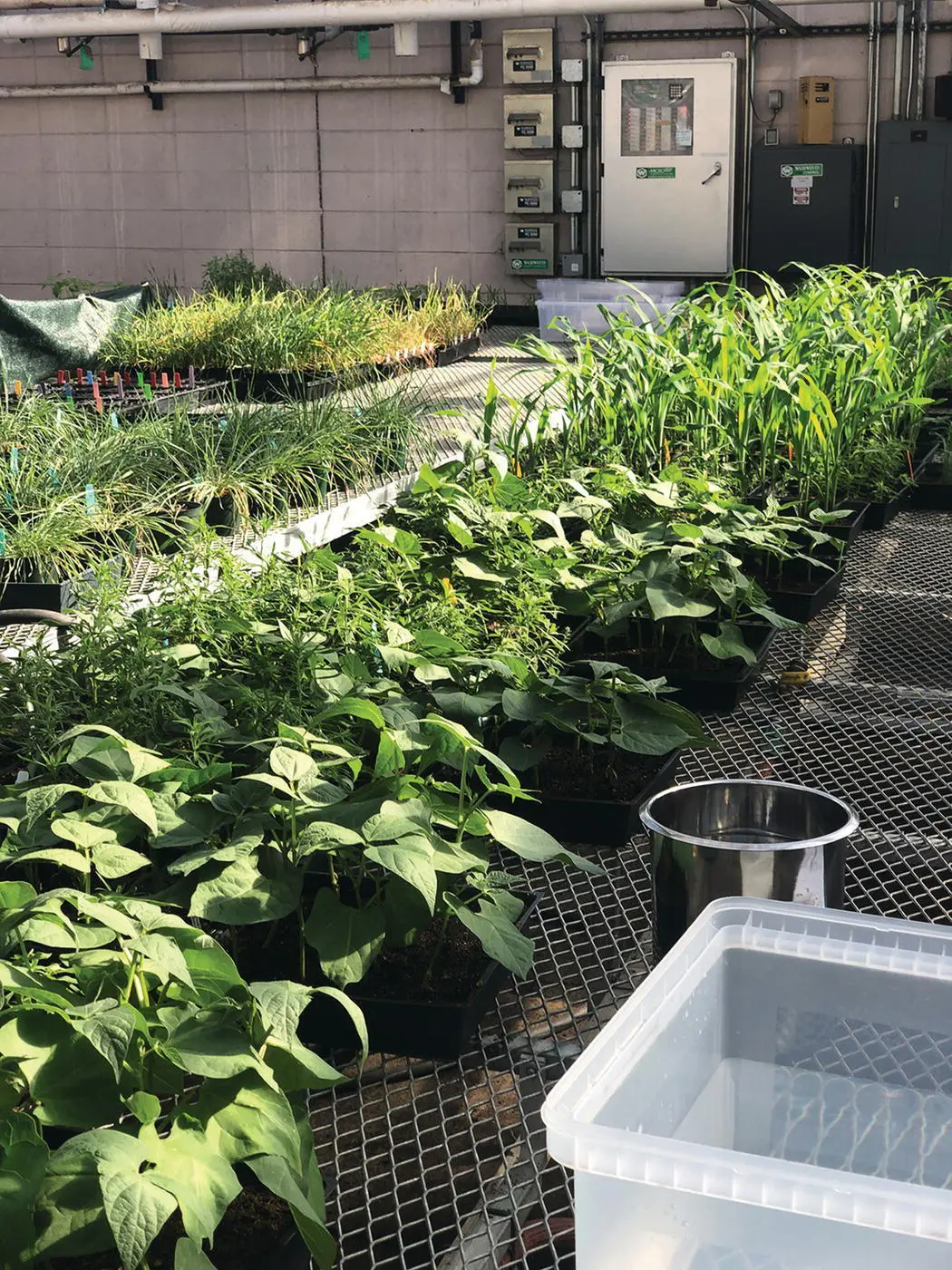
Fig. 1.4 A pot study in a glasshouse can be highly controlled.
Source: Bo Collins.
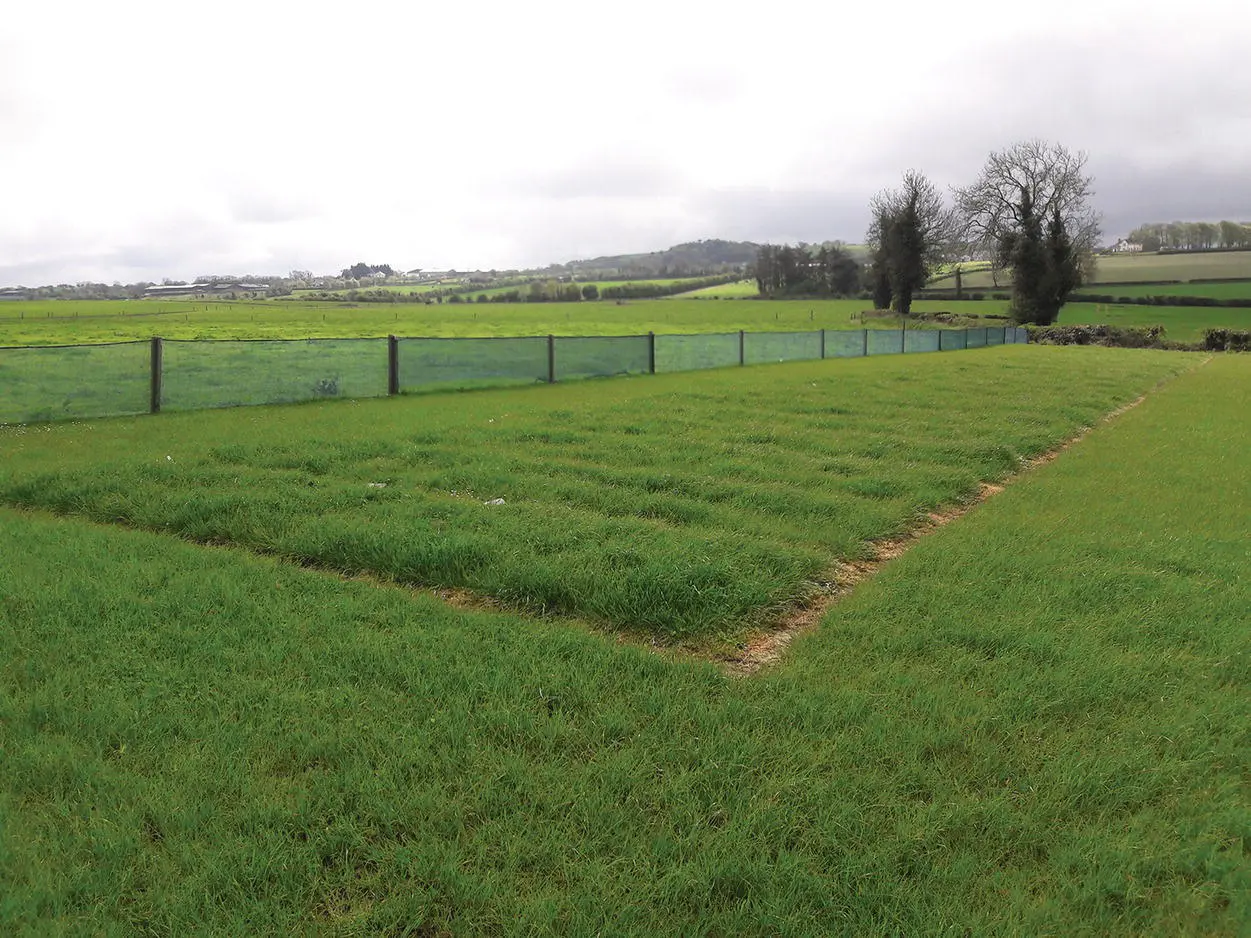
Fig. 1.5 A plot study like this grass trial can be used to examine effects of fertilizer, drought, crop species etc. under ‘real world’ conditions, and can be integrated with laboratory approaches such as pot trials or incubations.
Source: Sara Vero.
Researchers at almost any stage of their career may undertake in fieldwork, although frequently, the amount of time an individual spends in the field will probably decrease as they move toward a more senior or supervisory position ( Fig. 1.6). Fieldwork is an excellent teaching tool for bringing relevance and “real‐world” meaning to processes taught in classroom or laboratory setting, both in the secondary and high school setting, and at the undergraduate and graduate levels. In these cases, fieldwork often consists of tours, expeditions, demonstrations, or very structured experiments under the supervision of an experienced tutor or guide. Maskall and Stokes (2008) reported that although there is little empirical evidence that fieldwork quantitatively improves learning, it is generally viewed with enthusiasm by both students and their teachers. Why is this the case? Perhaps it reflects genuine interest held by those individuals either teaching or seeking to learn about the outdoors, for whom classroom activities, while vital, are not complete on their own. Perhaps it is that the tactile and tangible experiences in a “real‐world” setting enhance conceptual knowledge and demonstrate its application. Fieldwork teaches students practical and communication skills, contextual understanding, critical and “big‐picture” thinking, and the capacity to manage sometimes challenging tasks. These qualities are immensely valuable, both to the individual and to prospective employers, but may not be truly reflected in standard assessment. Sadly, it seems that fieldwork for pre‐university students is declining due to a number of factors, including funding and associated costs, implicit hazards and risks, and the move toward computational research in the environmental sciences. This is also true in postgraduate research and throughout industry and academia, as more powerful computational models are widely and cheaply available (Kirkby, 2004). It should be remembered however, that field research is still an indispensable component of modeling. Direct measurements provide the data by which models are built, calibrated, and tested, thus ensuring accuracy and realism. Field and model approaches should not be considered as completely separate approaches to agricultural and environmental research. Rather, they are tools which can be used in conjunction with one another, to build conceptual understandings and examine hypotheses. I hope that educators reading this guide will consider the great advantages and opportunities offered by fieldwork and will resist the trend to remove it from their curriculums.
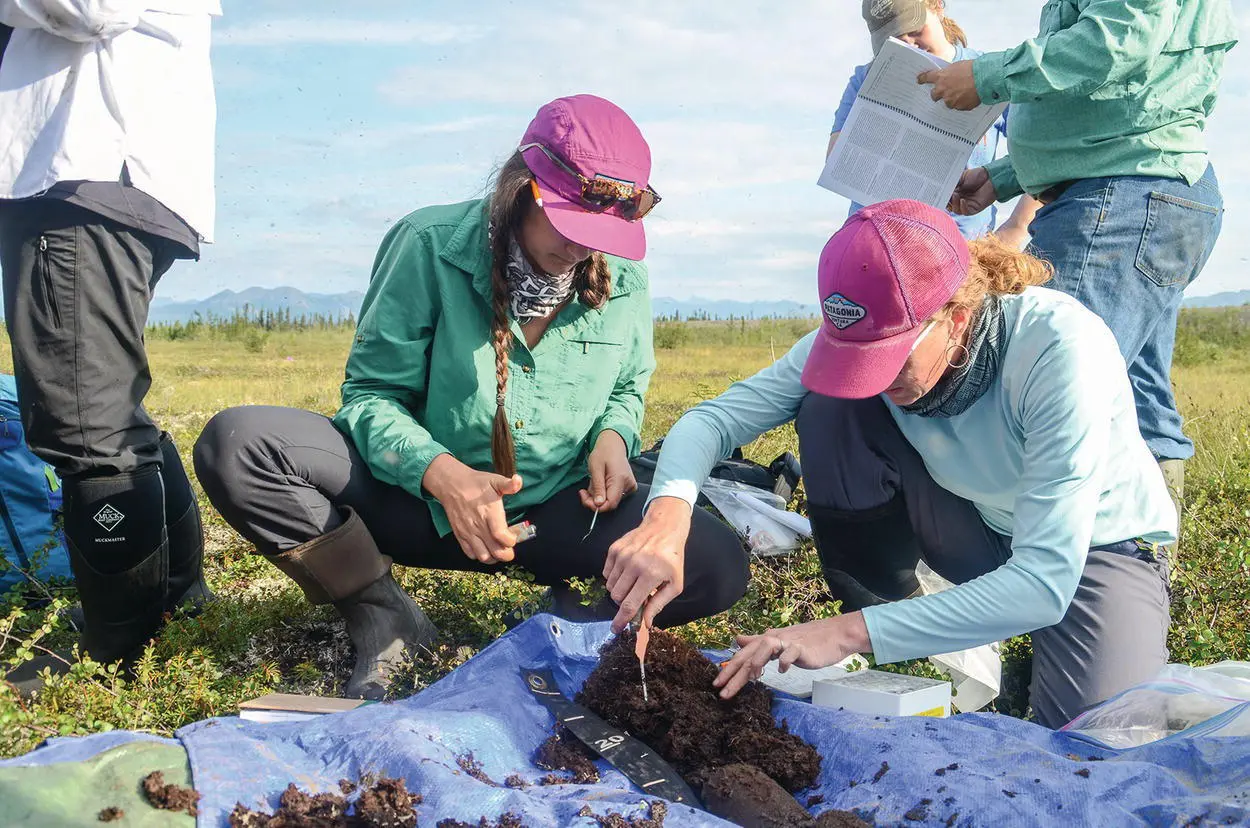
Fig. 1.6 Fieldwork is an opportunity to learn practical skills and apply lessons learned in the lecture theatre or classroom and to be mentored and trained.
Source: Jaclyn Fiola.
Thankfully, many undergraduate students still take courses that are either wholly or in part field based and may conduct individual or group fieldwork projects. At this stage of an individual's education, they are likely to be specializing and honing in on their area of interest. Fieldwork at this stage not only teaches the student but better enables them to learn in the future, by exposing them to challenges, forcing them to apply their existing knowledge, adapt to new situations, and work with other people. At the undergraduate level, field research advances students' knowledge, provides realistic, hands‐on learning opportunities, develops critical thinking and problem solving, and communication skills and teamwork ( Fig . 1.7). In short, fieldwork helps you learn to learn . This is the best lesson of all.
As a masters or doctoral student in any environmental field, you are more than likely to have at least a component of field research. Of course, the type, duration, and goal of fieldwork varies depending on the specific project. As a post‐graduate student, you are a researcher . While you are under the supervision of an advisor, it is your responsibility to design, conduct, and analyze your own experiment. This will likely change your approach to fieldwork. It is no longer prestructured and prepared by a lecturer or assistant as it is for undergraduate students. You are out there to answer a question. Anticipate that fieldwork may be challenging, both physically and mentally, but if we already knew the answer, there would be no need for your research! Although there are many unknowns, a sound approach to your field research can help you to find that answer ( Fig. 1.8).
When we look beyond education, researchers of all ages, career stages, and areas of interest may take to the outdoors to examine hypotheses, develop/test new technologies, monitor responses to change and ground‐truth models. Burt and McDonnell (2015) proposed that lateral, novel thinking and constructive debate is constrained by a dearth of fieldwork and the assumption‐challenging experiences that only the field can bring. It seems very likely that this limitation occurs beyond the field of hydrology that they described, and perhaps infects many fields of environmental investigation. Consider this scenario, without the monitoring and examination of diverse or dynamic environments, our understanding of their behaviors is grounded in assumptions made a priori, from potentially very different situations. We may be in error then not because our calculations are intrinsically incorrect or inaccurate, but rather, because they simply do not “fit” the areas we are concerned with.
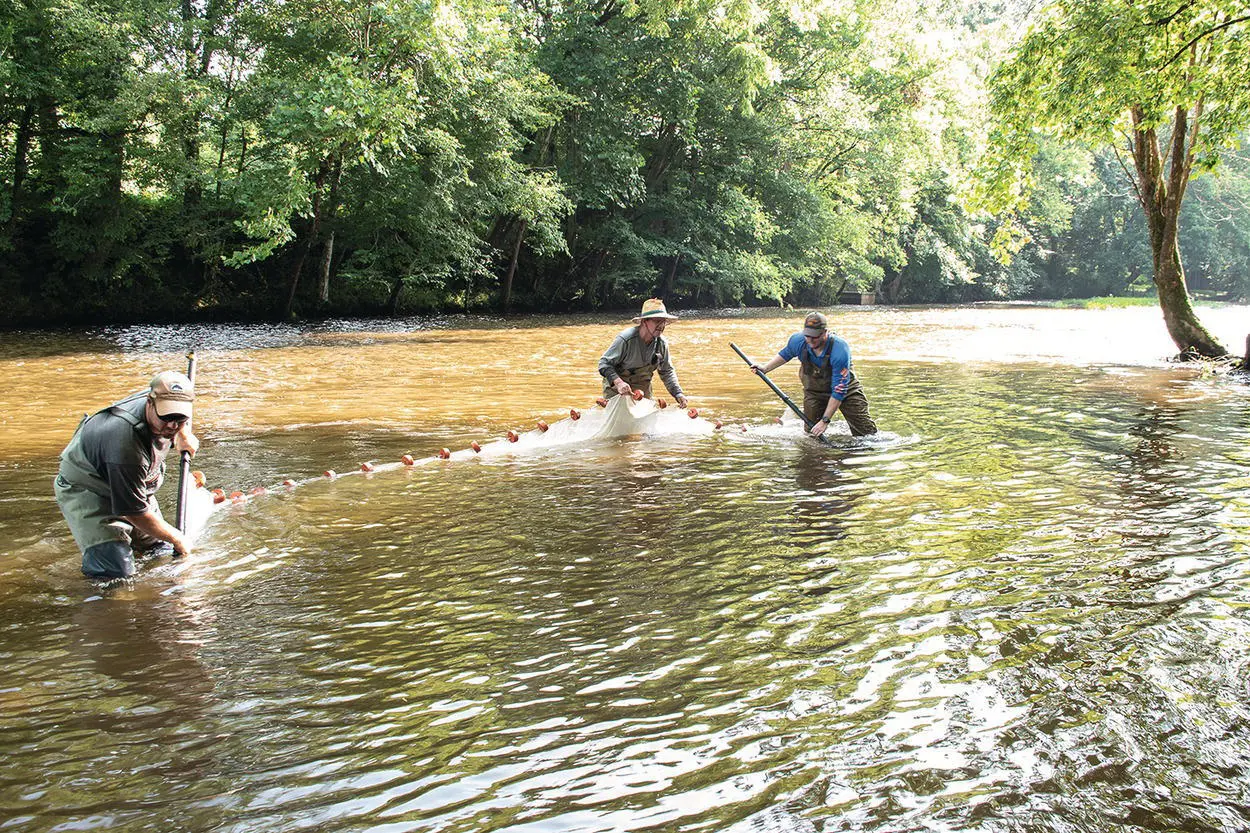
Fig. 1.7 In addition to technical skills, fieldwork teaches communication, teamwork, problem solving and planning. These are valuable abilities both for researchers and student who pursue other careers.
Source: Krista Keels.
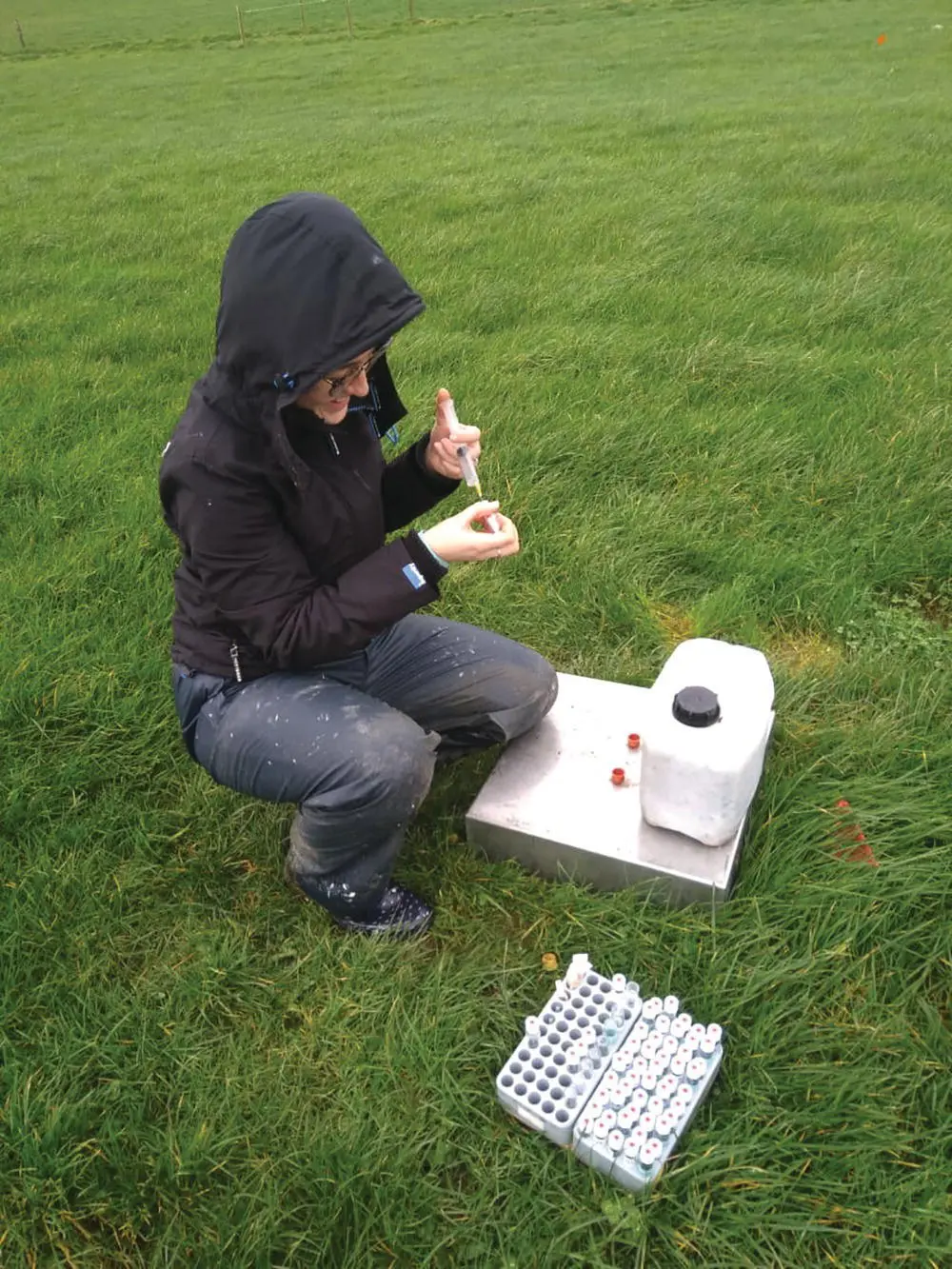
Fig. 1.8 A well designed field experiment allows effective data collection and in turn, helps you to examine your hypothesis. Knowing why you are doing this is the first crucial step.
Читать дальше
